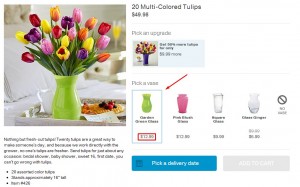Take it a step at a time because that is how it happens. It is easy to allow your mind to race with all of the “what if” scenarios. You will not know everything ahead of time, but it can be helpful to ask the prospect questions before meeting with them when possible. Know that even after you have gained sufficient experience to feel confident, you still cannot imagine every possible question, situation, or outcome. Just accept that you cannot know everything ahead of time. Have a plan for those situations. For example, if the prospect asks a question you do not know the answer to, you can say that you do not know, but you will be happy to find out for them. Then do exactly as you say to develop trust.
Finding out what the prospect needs – First, do your homework. Know your product or service and prospect inside and out. Having confidence in your knowledge comes through when meeting with the prospect. Your knowledge will inspire the customer’s confidence in your ability to help them. Ask probing questions to determine what the prospect needs. After you have determined what is important to them, be prepared to tell or show them the features that provide the benefits they are seeking. Remember that customers buy benefits, though, and not features. Show them how the feature provides the benefits they want. For example, your customers want a vehicle that features third row seating. That is a feature. The benefit, for them, is more seating capacity.
Asking for the sale – You sense they are ready to make a decision. You might ask them if there is anything else you can answer for them. It is time to close the sale. This is where you simply ask them, “So, Mr. and Mrs. Customer, can I get the paperwork started for you?”, or,”When do you want it delivered?” If you feel more confident, you can simply tell them when it can be delivered. Listen to their response carefully, for it will indicate if they are convinced and ready to close. You will fine-tune your closing statement according to your product or service, but, ultimately, you are asking them to make the purchase.
Handling objections – You have asked for the sale, and you get a “no” or objection. Let them think for a moment; they may talk themselves into it. Do make sure you understand what the objection is by repeating it back to the prospect in a gentle and slow manner. By doing this, you will show the prospect you are listening. Empathize with them but offer a valid rebuttal where it is plausible to do so. Maybe you can offer a better solution, after all.
Joshua writes articles about jobs and jobseeking. Search for sales jobs and find out more about sales tips for beginners here.
http://prospect.ezinemark.com/sales-tips-for-beginners-31e949280ef.html
(745)
Report Post




